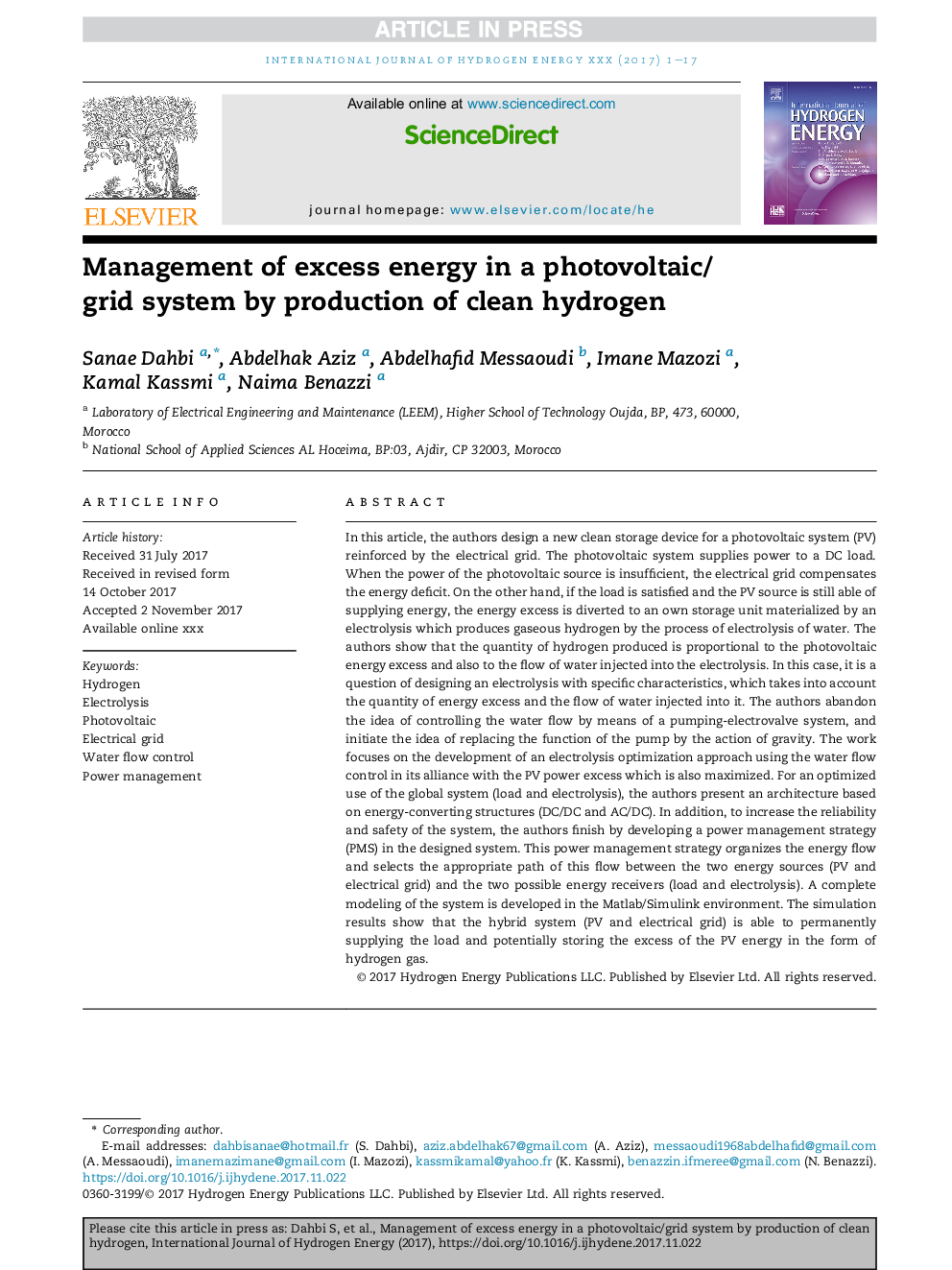| Article ID | Journal | Published Year | Pages | File Type |
|---|---|---|---|---|
| 7707406 | International Journal of Hydrogen Energy | 2018 | 17 Pages |
Abstract
In this article, the authors design a new clean storage device for a photovoltaic system (PV) reinforced by the electrical grid. The photovoltaic system supplies power to a DC load. When the power of the photovoltaic source is insufficient, the electrical grid compensates the energy deficit. On the other hand, if the load is satisfied and the PV source is still able of supplying energy, the energy excess is diverted to an own storage unit materialized by an electrolysis which produces gaseous hydrogen by the process of electrolysis of water. The authors show that the quantity of hydrogen produced is proportional to the photovoltaic energy excess and also to the flow of water injected into the electrolysis. In this case, it is a question of designing an electrolysis with specific characteristics, which takes into account the quantity of energy excess and the flow of water injected into it. The authors abandon the idea of controlling the water flow by means of a pumping-electrovalve system, and initiate the idea of replacing the function of the pump by the action of gravity. The work focuses on the development of an electrolysis optimization approach using the water flow control in its alliance with the PV power excess which is also maximized. For an optimized use of the global system (load and electrolysis), the authors present an architecture based on energy-converting structures (DC/DC and AC/DC). In addition, to increase the reliability and safety of the system, the authors finish by developing a power management strategy (PMS) in the designed system. This power management strategy organizes the energy flow and selects the appropriate path of this flow between the two energy sources (PV and electrical grid) and the two possible energy receivers (load and electrolysis). A complete modeling of the system is developed in the Matlab/Simulink environment. The simulation results show that the hybrid system (PV and electrical grid) is able to permanently supplying the load and potentially storing the excess of the PV energy in the form of hydrogen gas.
Related Topics
Physical Sciences and Engineering
Chemistry
Electrochemistry
Authors
Sanae Dahbi, Abdelhak Aziz, Abdelhafid Messaoudi, Imane Mazozi, Kamal Kassmi, Naima Benazzi,
